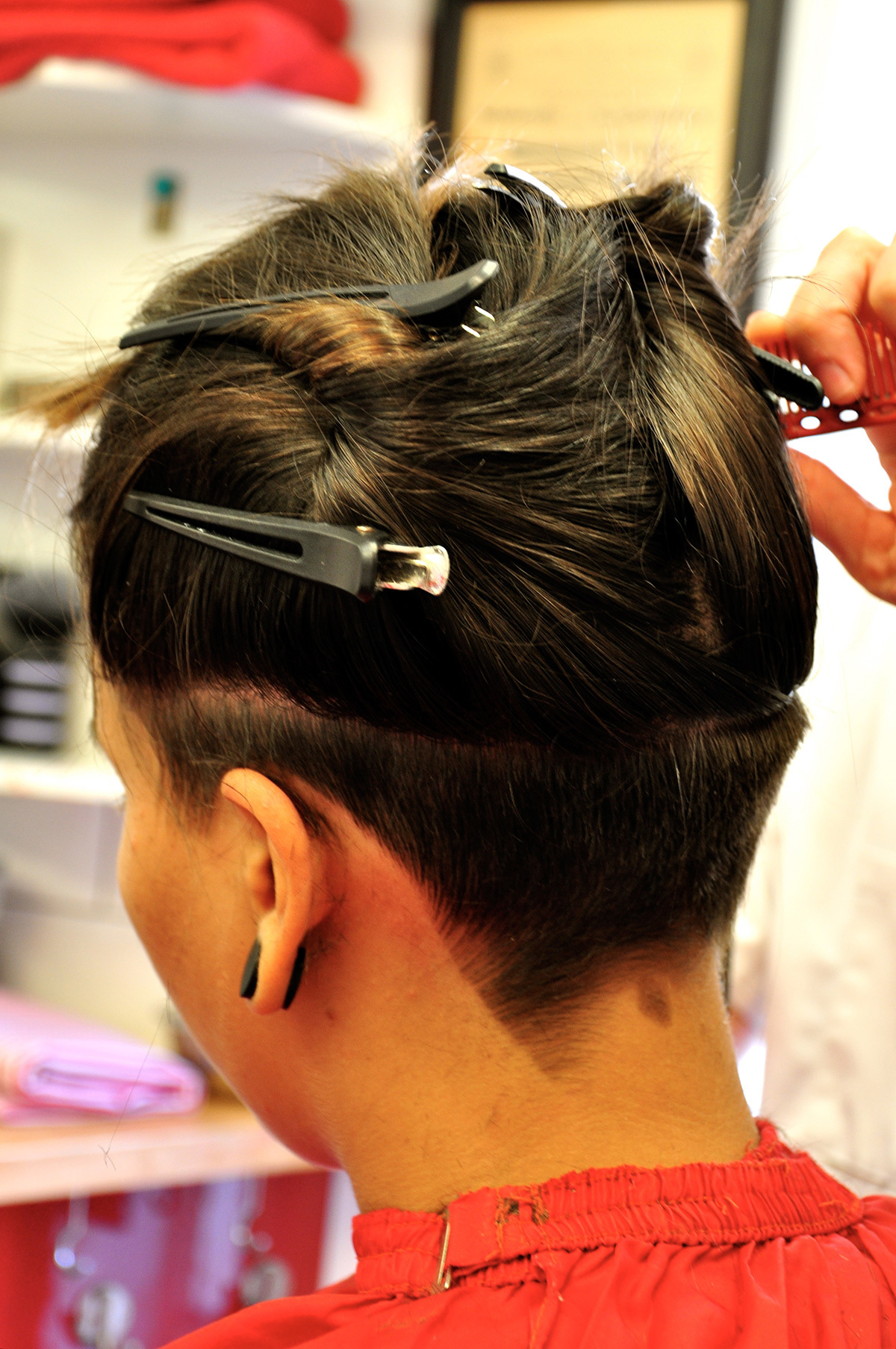In a small east London studio, three women are changing the hairdressing industry.
Barberette, established in 2012, is a gender-neutral barber shop that charges clients based on the service, rather than their gender. (Long hair costs £30, short hair £24 to £30.) Owned by Klara Vanova, the shop aims to bring an inclusive approach to hairdressing.
Videos by VICE
“Barberette initially started because of my own frustration with the experience with gendered hairdressing, or the hairdressing industry itself,” she says. “I’ve been told to go away from barber shops—I didn’t wanna pay extra for haircuts—or I felt not in place in the hairdressers.”
As with clothing and grooming products, women tend to pay more for haircuts. The reason is price discrimination: the perception that they are willing to pay more than men. Barberette is lobbying the British hair-industry bodies to incorporate gender neutrality into education and pricing—advocating an open-minded, unisex approach for salons and stylists.
Read more: Teens These Days Are Queer AF, New Study Says
“The hairdressing industry thinks that it’s just our unique selling point,” Vanova says. “It’s not. It’s an issue which has to be addressed.”
And the issue draws both clients (1,300 since opening in 2012) and other hairdressers (two). I’ve been a client for a year, lately getting a short asymmetrical cut with an undercut on one side.
Mako Bartalou started working at Barberette in 2015, after moving from France to London to learn barbering. “Klara taught me everything,” she says.

All photos by Alice Zoo
“At school, you don’t really learn much about cutting hair,” Bartalou says of France. “They teach you maybe three haircuts: women short hair, women long hair and men short hair. It’s very frustrating.”
In Parisian salons, similarly, she had to choose between doing women’s hair and coloring, or cutting men’s hair. “Barberette is the first place where I can do a bit of everything,” she says.
Barberette feels like being at a friend’s house more than a salon. The 160 square-foot space has temporary art exhibits, LGBTQ flyers and client “after” photos on the walls, and copies of Modern Barber and Diva.

“We are open to everyone,” Vanova says. The space is wheelchair-accessible, and the online booking system is accessible to people with hearing loss or deafness.
Maria Campbell-White, a client for two years, says she feels at ease at Barberette and gets the haircuts she wants—this time, a bowl cut with the front swept to one side.
“I used to go to other well-known hairdressers and ask for particularly short hairstyles, kinda funky ones, but I always ended up disappointed with the cuts I got,” she says. “They didn’t quite understand the I was looking for.”
Watch: The Power Suit
“It’s funny that hairdressing is a customer service industry, and customers don’t get what they want,” Vanova says.
Bartalou adds, “It became socially acceptable for a hairdresser to say, ‘You can’t have short hair because your face is too round, or short hair is too boyish, and you have to get something girly.’”
“It’s your job to do the haircut to suit the person, whatever they want,” Vanova believes. “You should not suggest that this would not suit them because you are unable to do it, not trained to do it, or you don’t want to do it for personal reasons. That’s the issue we want to change.”
Read more: Beyond Butch and Femme: A Beginner’s Guide to Lesbian Style
Cherene Hamilton started coming a year ago, after seeing her partner Campbell-White’s haircuts. “I would come out spending 150 quid, and it was always things that I didn’t really want,” she says of her past hairdressers, as Bartalou shaves a triangle pattern into her undercut.
At her last hairdressers, in Essex, she was charged four times more than men for a similar haircut. “It’s crazy, isn’t it, that you can go into a hairdressers and get the same as a guy, and you get charged triple the price,” she says.
In Bartalou’s experience, people rarely question the situation. “When I was working in Paris, I didn’t even question it myself. And no one ever came up to us saying, ‘Why am I paying more than this gentleman I’m sitting next to?’
“I think that’s how, so far, hairdressers can get away with it.”












